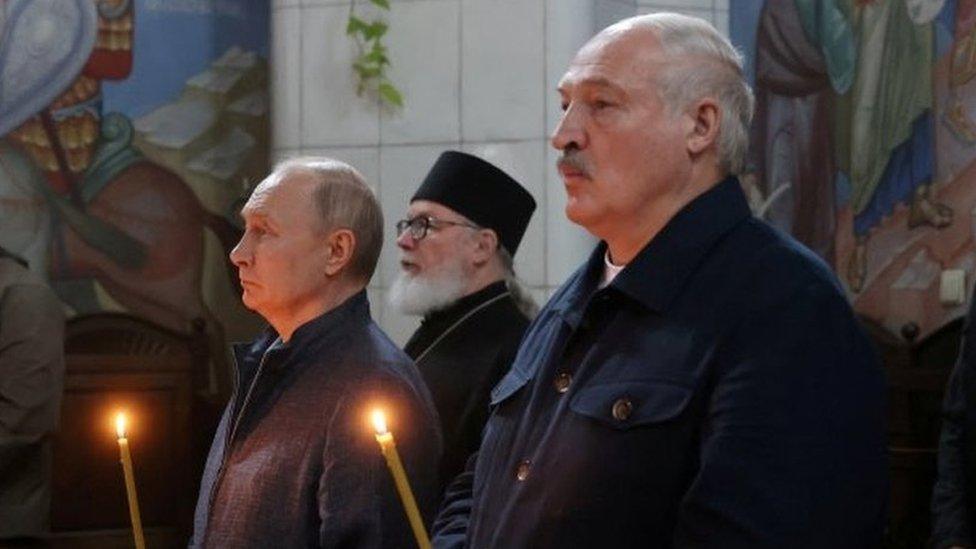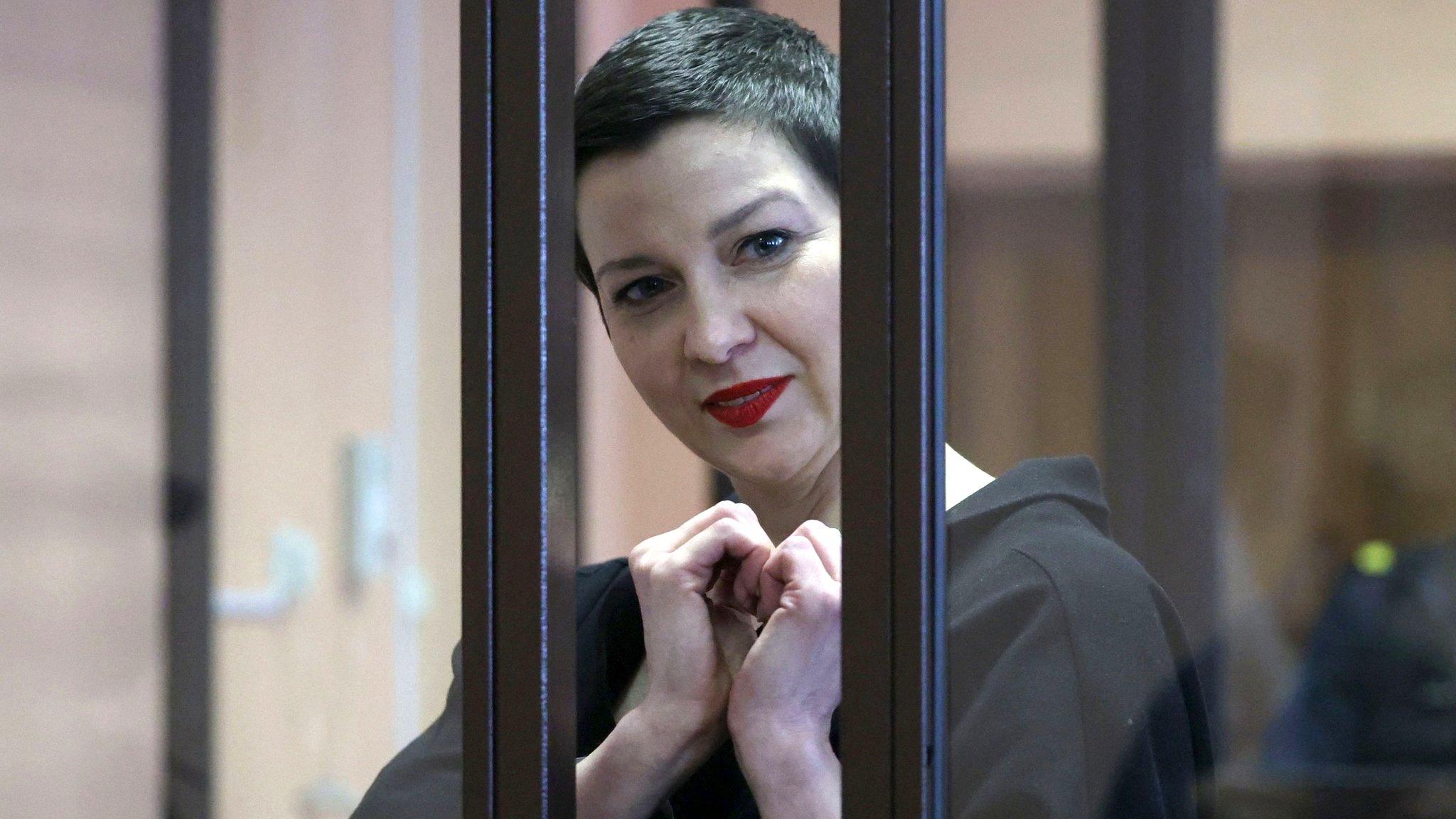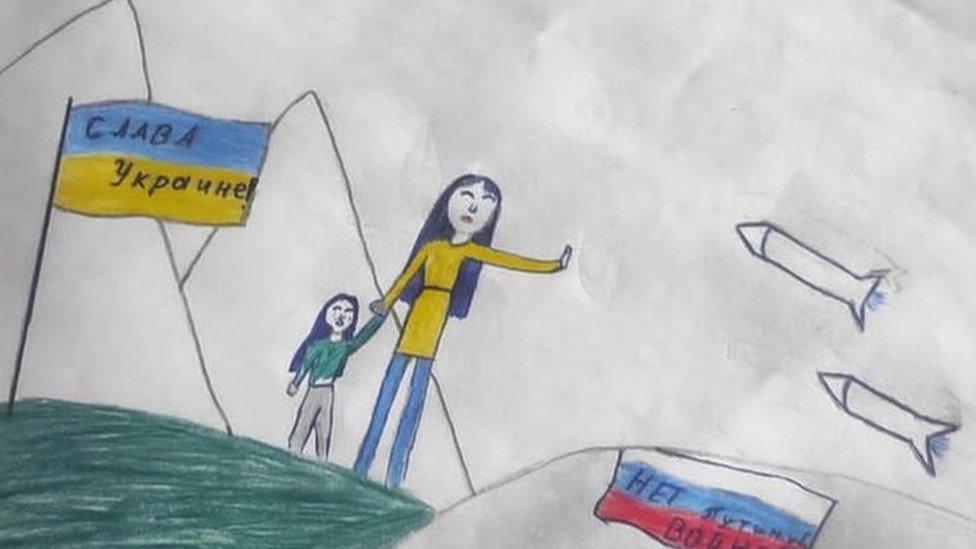Belarus declares 19th Century nationalist poems 'extremist'
- Published

Mr Lukashenko (R) has cracked down on opposition, including anti-Russian sentiment
Two Belarusian poems from the 19th Century have been declared "extremist", in a sign of an expanding crackdown on criticism of the authorities.
Vincent Dunin-Martsinkevich's poems relate to a nationalist uprising against the Russian Empire.
Authoritarian Belarus leader Alexander Lukashenko has tightened his grip on power since elections in 2020 which were widely considered to be rigged.
He has since provided support for Russia in its invasion of Ukraine.
Experts described the banning of the poems as part of a transition to totalitarianism, as many opponents of the regime are nationalists who dislike Mr Lukashenko's pro-Russian stance.
Most have now fled the country or are in jail.
An announcement by the prosecutor's office in the capital Minsk on Thursday said that the two poems, The Winds are Floating and Conversation of an Elderly Man, along with a foreword to the author's collected works by literary critic Yazep Yanushkevich, had been declared "extremist material".
The poems were written during the Kastus Kalinowski rebellion of 1863 by Belarusians and Poles in what was then Poland and a part of the Russian Empire.
Dunin-Martsinkevich was at the time accused of disseminating ideas "harmful for the authorities".
He was arrested and incarcerated, but his direct participation in the uprising was never proven.
Today his works are part of the school curriculum and his plays are performed regularly. He has several streets named after him and he is celebrated in his home town of Bobruisk, in the south-east of Belarus.
The independent outlet Nexta said that books by several 20th Century authors - Larisa Geniyush, Vladimir Neklyayev, Lidiya Arobey and Natalya Arseneva - had also been banned.
Related topics
- Published7 August 2023

- Published11 May 2023

- Published30 March 2023

- Published7 August 2021
